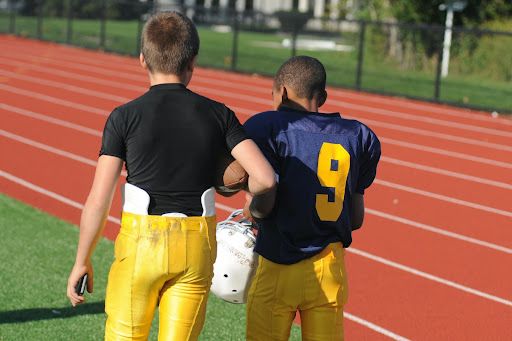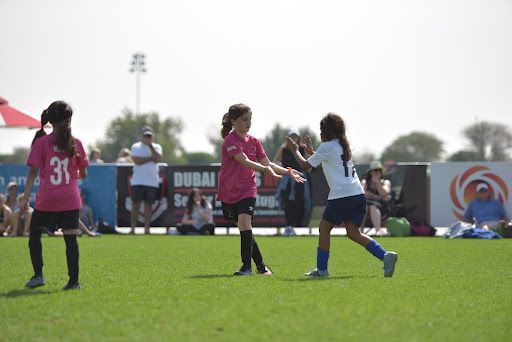The Importance of Youth Sports
Every generation of kids has different opportunities and challenges. The newest generation of kids growing up in the U.S. and many other places are entering a highly digital world, more so than any generation before. As we navigate how childhood is changing with the integration of new tech, some tried-and-true childhood activities still stand in popularity. Youth sports provide an outlet for kids to build sportsmanship, make friends, and be recognized for hard work.
Team Building
One of the most important benefits of kids getting involved in sports is how they learn about team building. Some youth sports may be more individualized, such as karate or golf, but most programs will have some team aspect. No matter the skill level, kids learn how to work with their teammates to achieve a common goal – winning the game. In school, there can be more individualized competition (e.g., who won the spelling bee, who's the best at math, etc.), so the chance to play sports can help kids learn these lessons.
Exercise
Another significant benefit of playing youth sports is getting exercise and building skills. Most children have lots of physical energy, and sports provide an outlet to release this energy and channel it into an organized game or practice. Youth sports are also a great supplement to activity throughout the day for kids. Once kids are in school, they are usually very sedentary other than a quick recess and gym class.
Time Outdoors
In a digital world, time spent outdoors can be extremely beneficial to mental and physical health. Humans need vitamin D to build bones, and the sun is one of the best suppliers of vitamin D. Not all youth sports are outside, but many are. If a sport is typically indoors, parents can always encourage their kids to practice out in the backyard or at a local park during the offseason or with friends on different teams.

Friendships
Having a variety of social relationships is fundamental to childhood. For kids who may not have siblings/family their age, youth sports can help them learn to interact with people their age and eventually form friendships. Some kids have an easier time making friends in extra-curricular activities like sports since there aren't the same pressures and constraints as in a classroom. If kids have friends on different teams than them, they can learn how friendships transcend boundaries.
Leadership
Adults tend to have more opportunities to be leaders than children. Adults can be leaders in their workplaces, neighborhoods, communities, and more, whereas children may not get much of a chance until high school. Many children develop leadership tendencies and traits early on and don't have a place to practice these habits – enter youth sports.
Youth sports leaders can encourage their team, set a strong example for their teammates, organize meetups outside of games and practice, and more. Leadership can be a set of traits, but it is also learned by practice, so starting a team captain of the week or a coach's assistant gives kids the space to learn to be leaders.
Community
Youth sports, at its heart, is about the kids. However, parents, siblings, grandparents, guardians, neighbors, and other community members can often get involved. A youth sports team can partner with a nonprofit for a fundraiser or have a game at the park by the senior living facility for the residents to watch. Once the kids are older, they can also help teach a clinic for their sport for younger kids. The sky's the limit on how youth sports can teach kids about community.
Long-term Goal-Setting
Youth sports also encourage long-term goal-setting. Many kids may try different sports during childhood, while others may stick to the same sport. Either way, since many sports require similar athletic skill sets, kids can begin to set goals for themselves at the start of each season or a new sport.
Some goals could be to improve their aim, agility, speed, endurance, reaction time, balance, and more. Then, parents and coaches can help kids come up with a plan to meet this goal and a way to measure it. Kids
become empowered when they can see progress in their long-term goals.

Recognition
Coaches, parents, and organizers should take the extra step to have an awards and recognition ceremony at the end of the season. Even if the team didn't win in a tournament or advance to the next level, the kids put the time in the whole season and will appreciate the recognition. Participation trophies are one way to go, but specific awards can be more rewarding and fun.
You can still have an M.V.P. award or "Most Improved," but also consider "Best Hydration" for the kid who drank the most water or "Team Cheerleader" for the kid who always encouraged their teammates. The sense of accomplishment that comes with receiving an award helps children build confidence and will have them coming back to play next season.
Check Out Woltman Trophies and Awards
Get connected with our team here at Woltman if you're looking for youth sports trophies, plaques, and more. We have lots of products and the ability to add customizations to fit your award. We also make awards for companies, communities, and other areas outside of youth sports.
Contact us today!



